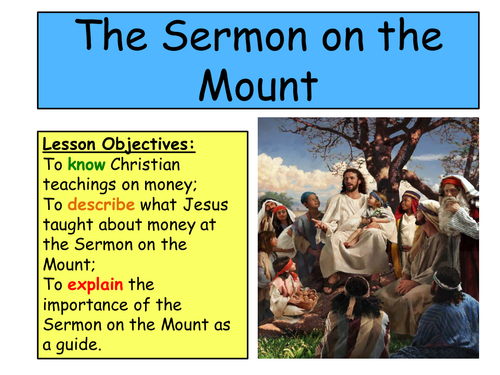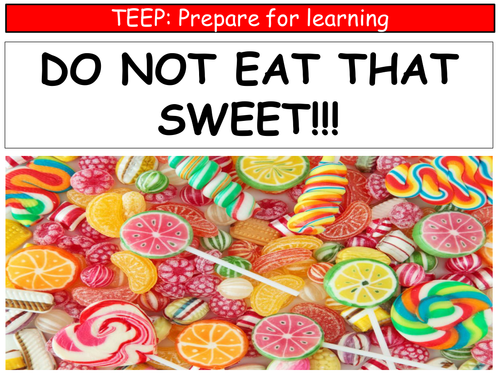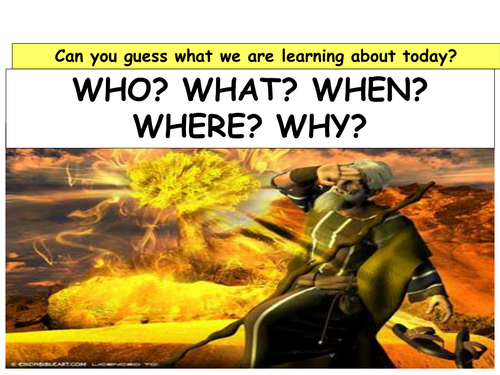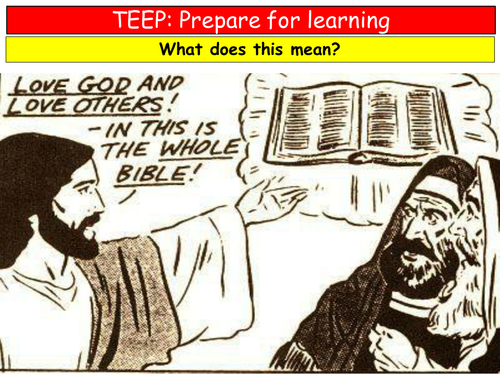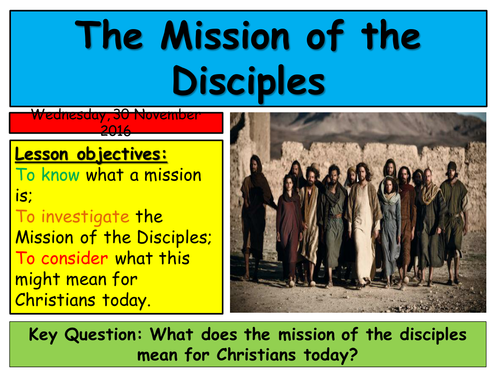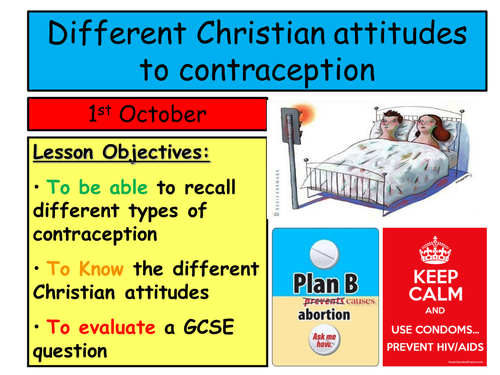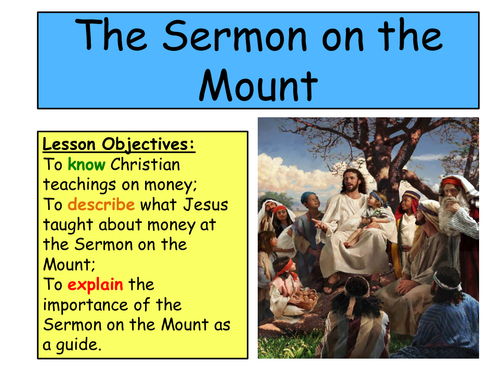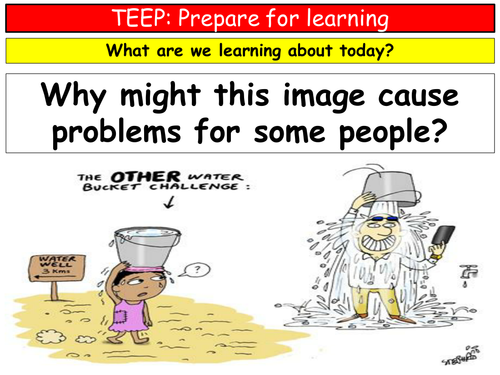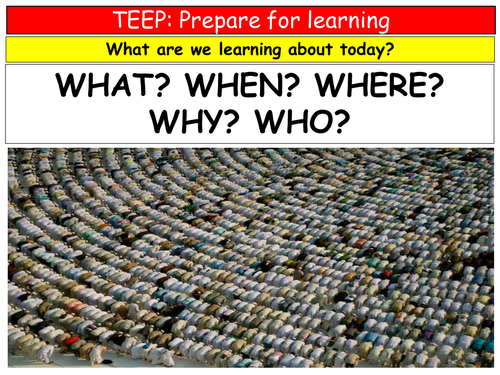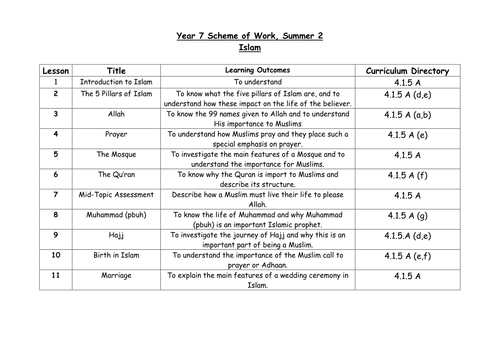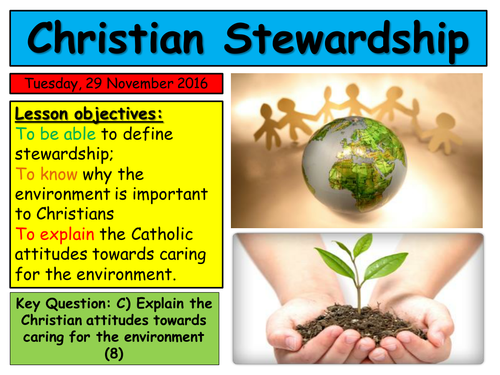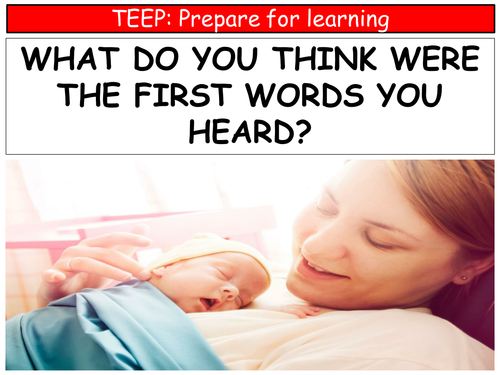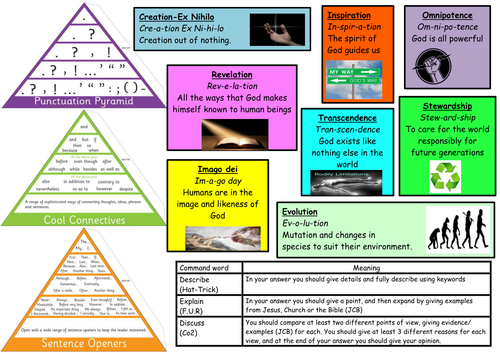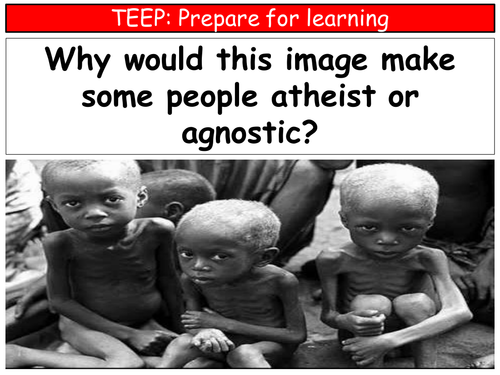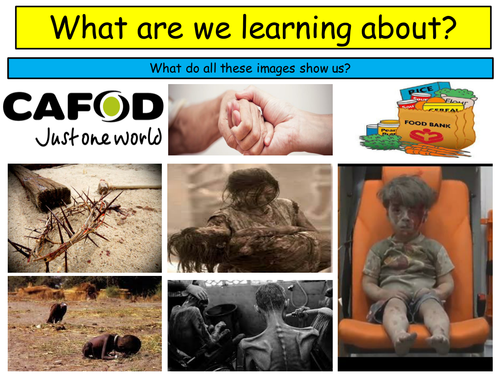
61Uploads
21k+Views
5k+Downloads
All resources

KS3 Charity- Christian Teachings. The Sermon on the Mount
Lesson Objectives:
To know Christian teachings on money;
To describe what Jesus taught about money at the Sermon on the Mount;
To explain the importance of the Sermon on the Mount as a guide.

KS3 Islam - Ramadan
To know what Ramadan is;
To explore what Muslim people do during Ramadan;
To explain why Ramadan and Eid are important.

KS3 Introduction to Islam
Learning Objectives:
To know the keywords for this topic;
To explain why its important to learn about world faiths;
To explore some of the beliefs of Islam.

The Prophet Moses
A KS3 lesson focusing on Moses and the messages he received from God.
There are a variety of different learning styles included in this lesson.
Lesson objectives are referred to throughout the lesson, as well as a Key Question that pupils will answer at the end of the lesson.

EDUQAS Route B, Theme 1.2 The Moral Authority of Jesus
The lesson focuses on need for laws in society, and linking these to Old Testament religious laws, and how Jesus changed these at the Sermon on the Mount.
Pupils are to work together to see how Jesus changed these laws. Pupils must then apply these to issues that they may have in their life and decide how Jesus would respond.
These is a final C question with guidance to finish the lesson.

KS3 Sending out the 12 Disciples
This lesson is aimed at KS3 but could be adapted for older pupils. The aim of the lesson is to think about what the mission of the disciples was, and what impact that has on Christians today.
The lesson includes a variety of activities including an investigation task and an exam style question as well as a postcard (from their mission) as a plenary activity.

KS3 Charity- Christian Teachings, Sermon on the Mount
To know Christian teachings on money;
To describe what Jesus taught about money at the Sermon on the Mount;
To explain the importance of the Sermon on the Mount as a guide.

KS3 Charity- Water Aid
To recognise the work that WaterAid do;
To describe why lack of water is an issue in the world;
To explain the importance of the role of WaterAid in ensuring people have access to clean water

KS3 Islam- Salat (Prayer)
Lesson Objectives:
To know why prayer is important to Muslims
To understand how the ritual of prayer can have meaning for Muslims.
To explain how prayer can express and reveal important beliefs.

KS3 Islam- Allah
Lesson Objectives:
To know the different names given to Allah;
To explore the Muslim beliefs about Allah;
To describe the significance of the oneness of Allah.

KS3 Islam Assessment bundle
Islam Assessment bundle includes:
Scheme of work;
Learning programme of week by week learning including homework;
End of unit assessment with skills and space for WWW and EBI;
End of unit assessment lesson preparation lesson;
Mid-topic assessment lesson.

2016 RE EDUQAS GCSE. Route B, Theme 1. Genesis 1 & 2
This lesson is looking at the similarities and differences between the two accounts of creation with a focus on how it demonstrates Gods omnipotence.
There are a range of different learning styles included in the lesson.
This covers the new RE GCSE 2016 in RE, EDUQAS.

Pentecost
To describe the events of Pentecost;
To understand the symbolism seen during Pentecost;
To explain the significance of this event.
The starter to this lesson pupils must look at an image and come up with 3 ideas about how it can link to Pentecost.
Pupils are then working in pairs to search for the passage in the Bible and summarise the Pentecost into 5 bullet points. There is a video clip to accompany this (hyperlinked image)
Pupils are then discussing the symbolism of Pentecost (short task) and finally the importance. This is a short activity and a video clip.
The final tasks pupils are to complete an exam style question. this is Heavily structured with guidance and to peer/self assess their work.

EDUQAS 2016 Religious Education Route B Theme 1.1 Catholic Teachings on Stewardship
This lesson looks at the catholic teachings of stewardship. The lesson starts with a Pictionary style keyword activity and a think pair share task. There are then a variety of activities including a group presentation, video clips and an exam question. The lesson ends with a timeline of learning task or a plenary triangle.

KS3 Islam- Birth
To state how Muslims welcome a baby into the world;
To describe why this is important.

EDUQAS Route B, Theme 1.1 & 1.2 Keyword Mat (Origin & Meaning, Good & Evil)
This is a resource I have used to assist my lower ability pupils with keywords. Each key word has an image, simplified definition , and phonetic spelling.
in addition to this there are punctuation, connective and opener pyramids. I have included the command words for each question (describe, explain, discuss) and the meaning of each. I have also included 'Hat-Trick', 'FUR' and 'Co2' as this is something I have done with my pupils to assist with exam structure.
These work best when printed in A3 and colour.
I have laminated these and allow pupils to circle the keywords that they aim to use in the questions with a dry wipe pen which works well with my classes.

EDUQAS Route B, Theme 1.2 Good and Evil, Catholic responses to Evil and suffering
There is an entry task for pupils to complete as they enter.
Objectives are shared with the pupils
Starter: A video clip (The image is hyperlinked) pupils must come up with 3 reasons why people are atheist or agnostic.
The problem of evil is shared with pupils and then they must complete an 'investigation task' around the room with various catholic responses.
This is fed back to the whole class where pupils are to analyse with responses they believe are most and least convincing and a reason why.
Pupils are to answer a C question: Explain how Catholics respond to the problem of evil (8)
This is peer assessed with suggested WWW's & EBI's provided.
A short plenary.
**THIS LESSON HAS BEEN PLANNED USING THE TEEP (Teacher Effectiveness Programme) CYCLE AND SO THERE IS REFERENCE TO EACH ASPECT OF THAT ON THE SLIDES
Bundle

REligious Education KS3 Charity
Assessment pack- SOW, Learning Plan, End and Mid-topic assessment, Assessment prep lesson.
Causes of poverty;
Christian teachings- Sermon on the Mount;
Christian teachings- Sheep and Goats;
Christian Aid;
CAFOD (x2)
Send my friend to school (x2)
The SVP
St Francis House;
WaterAid;

EDUQAS Route B, Theme 1.2 Good and Evil The meaning of Suffering to Roman Catholics
This lesson I have looked at the meaning of suffering and focused on the Omni-benevolence of God. The lesson starts with an entry task, shared objectives and a Pictionary keyword starter task.
The lesson is focused on a D style question “God cannot be omnibenevolent because we have suffering in our world” (15). Pupils must place themselves on an opinion line relating to this question.
Pupils must take part in a collaborative learning task where they are expected to produce a presentation based on what they have learnt. They must make reference to the teaching of the Bible, Church and religious leaders.
They exam question is reviewed and answered (a basic structure is provided)
Pupils then review the opinion line again to assess if their opinion has changed.

